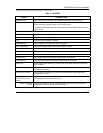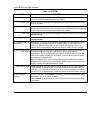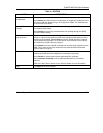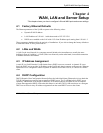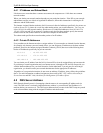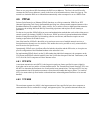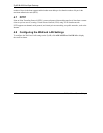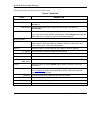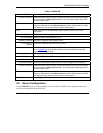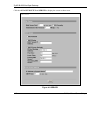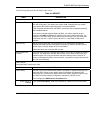
ZyAIR B-4000 Hot Spot Gateway
4-2 WAN, LAN and Server Setup
4.4.1 IP Address and Subnet Mask
Like houses on a street that share a common street name, the computers on a LAN share one common
network number.
Where you obtain your network number depends on your particular situation. If the ISP or your network
administrator assigns you a block of registered IP addresses, follow their instructions in selecting the IP
addresses and the subnet mask.
The Internet Assigned Number Authority (IANA) reserved a block of addresses specifically for private use
(refer to Section 4.4.2); please do not use any other number unless you are told otherwise. Let’s say you
select 192.168.1.0 as the network number; which covers 254 individual addresses, from 192.168.1.1 to
192.168.1.254 (zero and 255 are reserved). In other words, the first three numbers specify the network
number while the last number identifies an individual computer on that network.
The subnet mask specifies the network number portion of an IP address.
4.4.2 Private IP Addresses
Every machine on the Internet must have a unique address. If your networks are isolated from the Internet,
for example, only between your two branch offices, you can assign any IP addresses to the hosts without
problems. However, the Internet Assigned Numbers Authority (IANA) has reserved the following three
blocks of IP addresses specifically for private networks:
10.0.0.0 — 10.255.255.255
172.16.0.0 — 172.31.255.255
192.168.0.0 — 192.168.255.255
You can obtain your IP address from the IANA, from an ISP or it can be assigned from a private network.
If you belong to a small organization and your Internet access is through an ISP, the ISP can provide you
with the Internet addresses for your local networks. On the other hand, if you are part of a much larger
organization, you should consult your network administrator for the appropriate IP addresses.
Regardless of your particular situation, do not create an arbitrary IP address; always follow the guidelines
above. For more information on address assignment, please refer to RFC 1597, Address Allocation for
Private Internets and RFC 1466, Guidelines for Management of IP Address Space.
4.5 DNS Server Address
DNS (Domain Name System) is for mapping a domain name to its corresponding IP address and vice
versa. The DNS server is extremely important because without it, you must know the IP address of a
machine before you can access it. The DNS server addresses that you enter in the DHCP setup are passed
to the client machines along with the assigned IP address and subnet mask.






